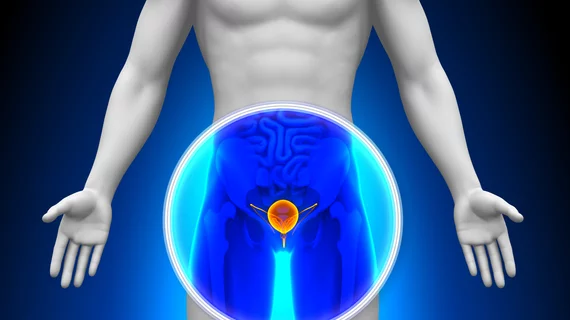Prostate AI cleared for U.S. sales
A medical AI startup in Omaha, Neb., has received the FDA’s blessing to market software for diagnosing prostate cancer on MRI scans.
Announcing the development Aug. 8, Bot Image says its ProstatID algorithm has been trained on thousands of image datasets, radiologist interpretations and pathologist findings.
The tool assigns any suspicious lesions a PI-RADS score (for Prostate Imaging Reporting and Data System), flagging those likely to be cancerous for further radiologist review.
The company says ProstatID proved its prowess in two clinical studies involving 25 U.S. radiologists. In the research, the product “significantly improve[d] radiologic interpretation accuracy as measured by improved detection and fewer false positives.”
ProstatID’s ability to detect lesions and assign a cancer probability to prostate MRI cases “goes far beyond existing technologies which have improved on-screen formatting of prostate MRI cases and segmentations of a patient’s prostate but stopped short of aiding in detection and diagnosis,” Bot Image says in a news release.
The computer-aided detection tool is currently available for use as a Software-as-a-service (SaaS) device, needing only a secure VPN tunnel connection between the radiology department server or MRI system and the cloud-based ProstatID server, the company says, adding that the software and connectivity are both HIPAA-compliant.
Bot Image founder and CEO Randall Jones, PhD, MBA, adds that, with the FDA approval of ProstatiD, “hospitals and radiological clinics can connect [with] as little as one hour of IT effort and begin bringing this exciting technology to their patients.”
Full announcement here.

